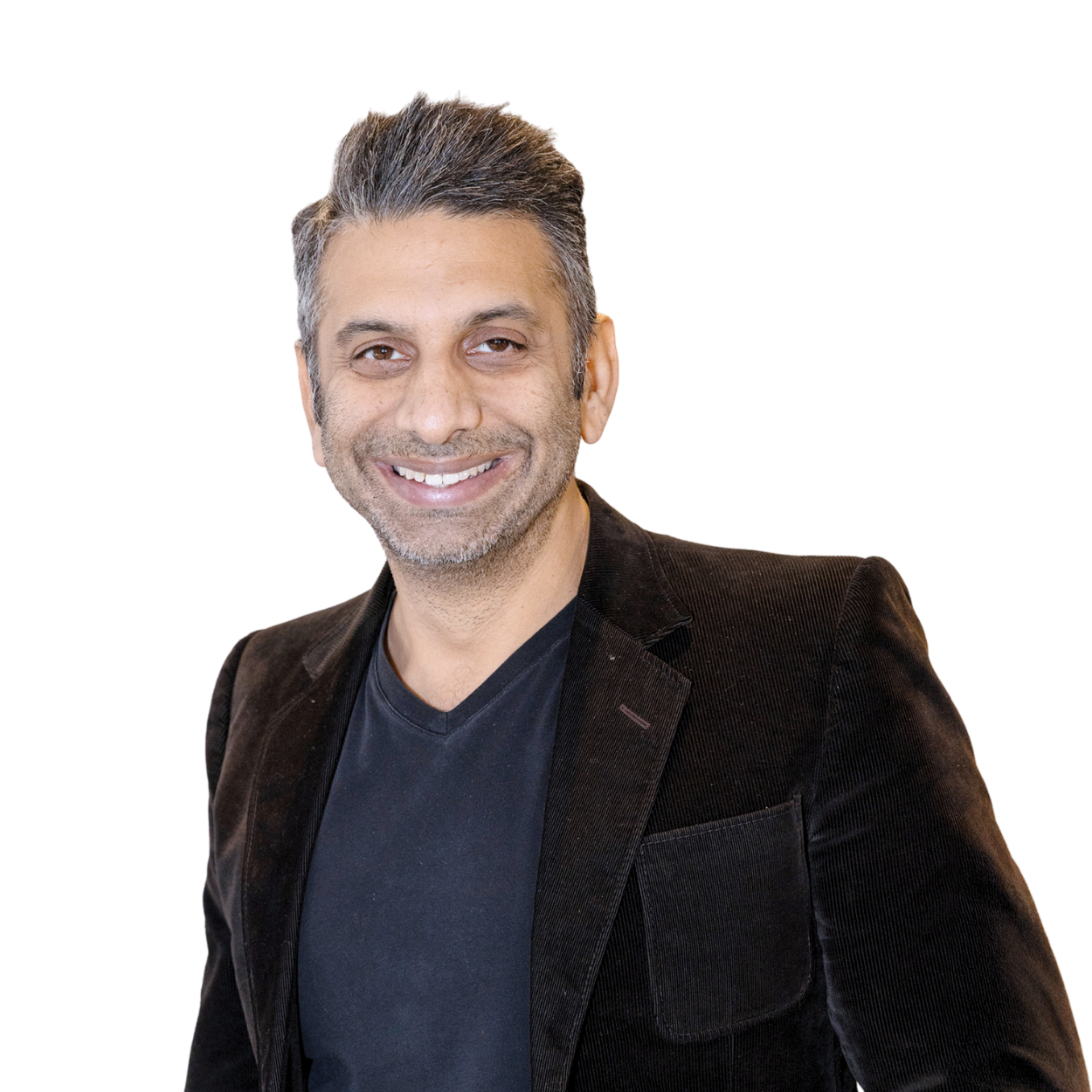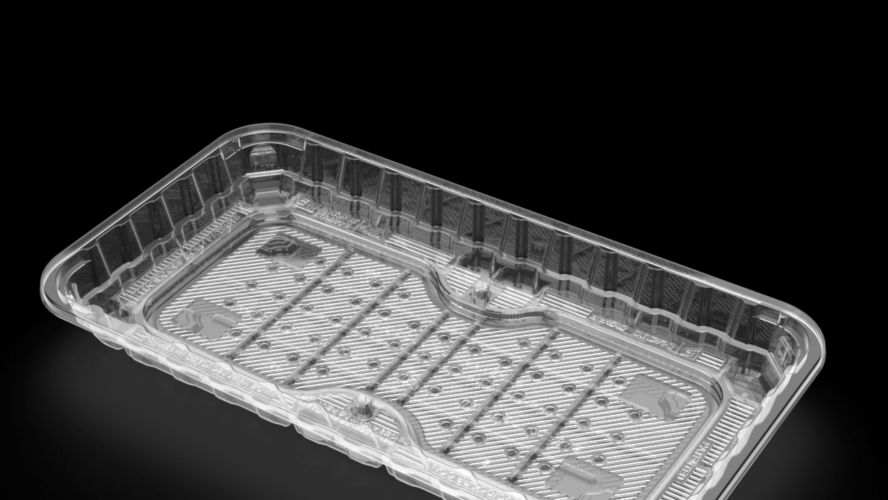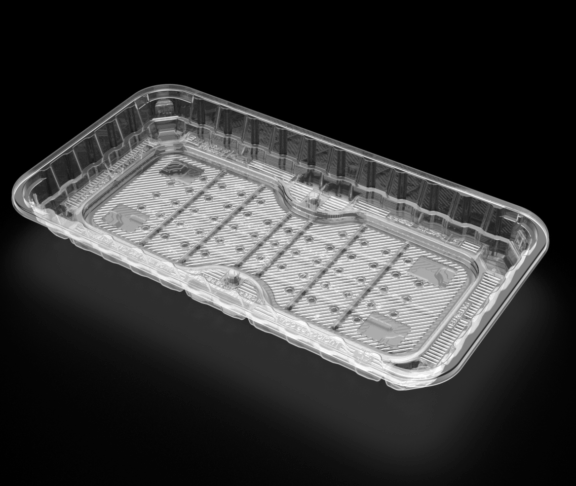
Salman Ebrahim
President & Co-Founder of Lucid Corp

Edmund Chin
Managing Director and Co-Founder, Lucid Corp
Lucid Corp’s innovative plastic meat tray eliminates the problem of non-recyclable soaker pads and diverts tons of plastic from the landfill.

If you think those empty plastic meat trays you toss into your Blue Box get recycled, think again. “Tens of billions of plastic and Styrofoam trays with soaker pads are dumped into landfills each year,” says Salman Ebrahim, President & Co-Founder of Lucid Corp, a Toronto-based firm specializing in food packaging solutions.
The soaker pad or “diaper” in the tray is there to absorb the fluids, or purge, that come from proteins like chicken, beef, and seafood. While the plastic tray itself is recyclable, the pad attached to the tray isn’t. “People toss the whole thing into the recycling bin with good intentions, but by not removing the soaker pad, that tray is now non-recyclable and will be rejected at the sorting plant and sent to the landfill,” says Edmund Chin, Managing Director and Co-Founder, Lucid Corp.
Innovative solution
Lucid Corp has developed a solution to this global challenge. “Once we grasped the gravity of the problem, we knew we had to act,” says Ebrahim. In 2020, he and Chin founded Lucid Corp with the goal of becoming the most sustainable food packaging company in the world. Their determination, coupled with a world-class engineering team, led to the invention of the Lucid InfinityTM tray. The Infinity tray is made from 100 per cent recyclable polyethylene terephthalate (PET) and is the first commercially pad-less tray available at scale. “By prioritizing efficiency through automation and process, we’ve engineered a solution that makes the soaker pad totally obsolete. Our patented 2-piece design provides a sophisticated built-in reservoir, cleanly separating meat fluids from the product,” says Chin.
Pad-less trays make it easy for consumers
That’s good news for both consumers and the environment. “Being pad-less, consumers don’t have to handle or smell the bacteria-laced soaker pad. They can simply place the Lucid Infinity tray into the recycling bin and feel confident that they’re helping to divert tens of billions of trays with soaker pads from the landfill,” says Chin, “It’s the world’s largest problem in sustainable food packaging.”
The tray’s leak-resistant design and customizable reservoir make it a versatile product choice for commercial retailers. “Our tray delivers premium quality, and is engineered for sustainability and circularity, but priced to compete head-to-head with standard meat trays with soaker pads,” says Ebrahim.
Rising pressure to address plastic pollution
Leaders are recognizing the negative impact of the plastic pollution crisis on human health and the environment. While the recent fifth round of negotiations for a UN Global Plastics Treaty to eliminate plastic pollution failed to reach an agreement, a majority of countries have expressed support for it. “With consumers demanding sustainable choices, companies racing to hit ESG goals, and industry groups enforcing the Golden Design Rules that our tray already meets, the shift to sustainable is inevitable,” says Ebrahim.
Choose recyclable plastics
Consumers can help accelerate this shift through the choices they make every single day. By advocating for sustainable food packaging, such as the Lucid Infinity tray, retailers and consumers can help drive a powerful push towards a more sustainable and regenerative economy. “The Lucid Infinity tray has set the gold standard in food packaging. When you offer your consumers our 100 per cent PET packaging options, you’re sending a clear message about your commitment to sustainability,” says Ebrahim. “All Lucid Infinity packaging is 100 per cent recyclable, helping to meet ambitious environmental goals,” he says.
More sustainable options
In addition to making conscious choices, there are plenty of advocacy activities consumers and retailers can partake in. They may consider writing to sustainability leaders or directors of major grocery chains encouraging them to phase out the use of soaker pads. They can also advocate during grocery store visits by asking the manager if they plan to adopt a pad-less tray. Chances are, they don’t even know about it, so here’s your chance to educate.
Grocery chain leaders can bring this solution to the table for consideration. Not only is it helping to solve a global environmental waste problem, but the Lucid Infinity tray also makes for a positive consumer experience at a competitive price—no mess, no fuss, and no more guesswork on where it should go. And in-store, it’s designed to highlight freshness and offer customizable designs for sleek, streamlined merchandising.
Learn more about Lucid Corp’s sustainable food packaging at lucidcorp.com.




